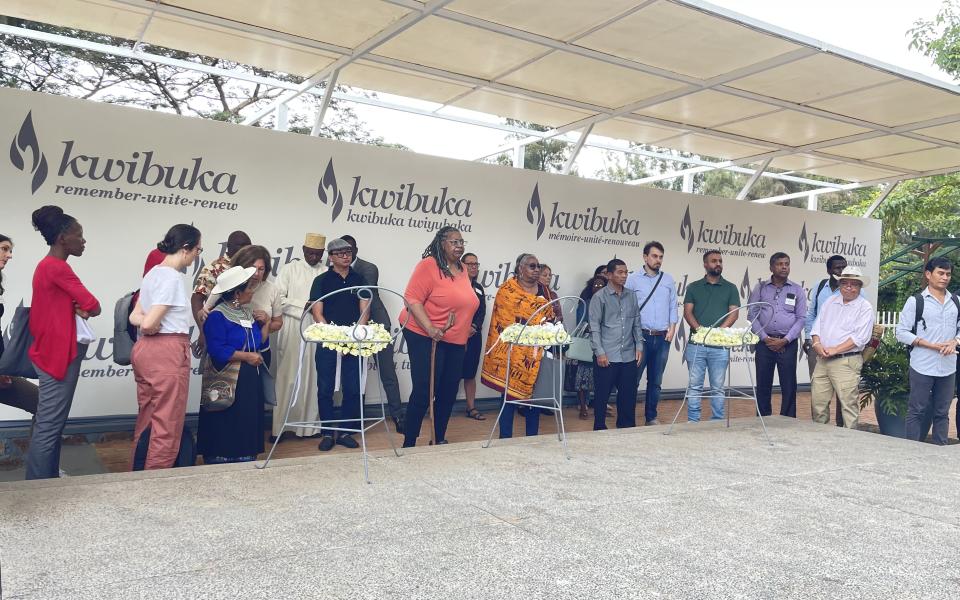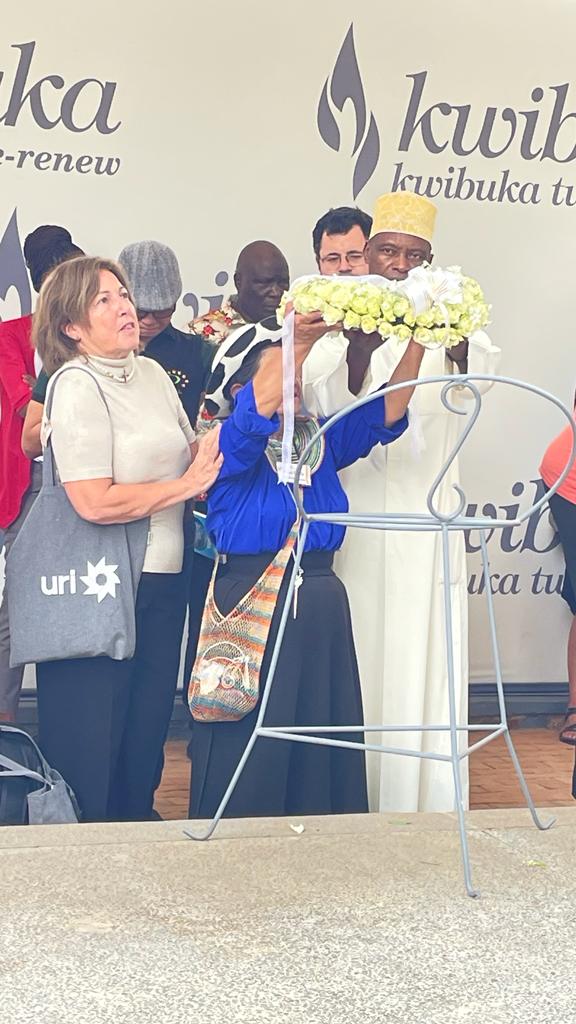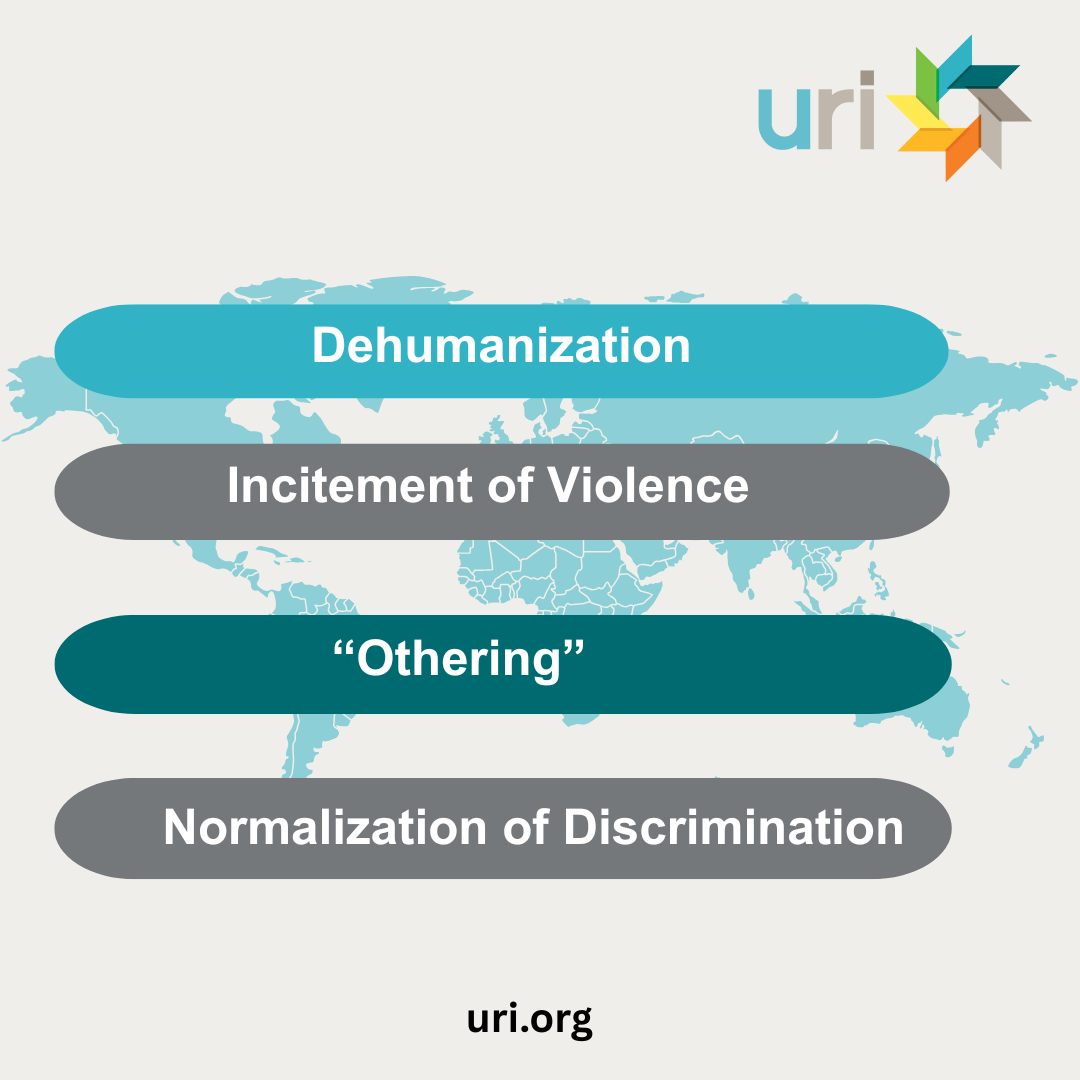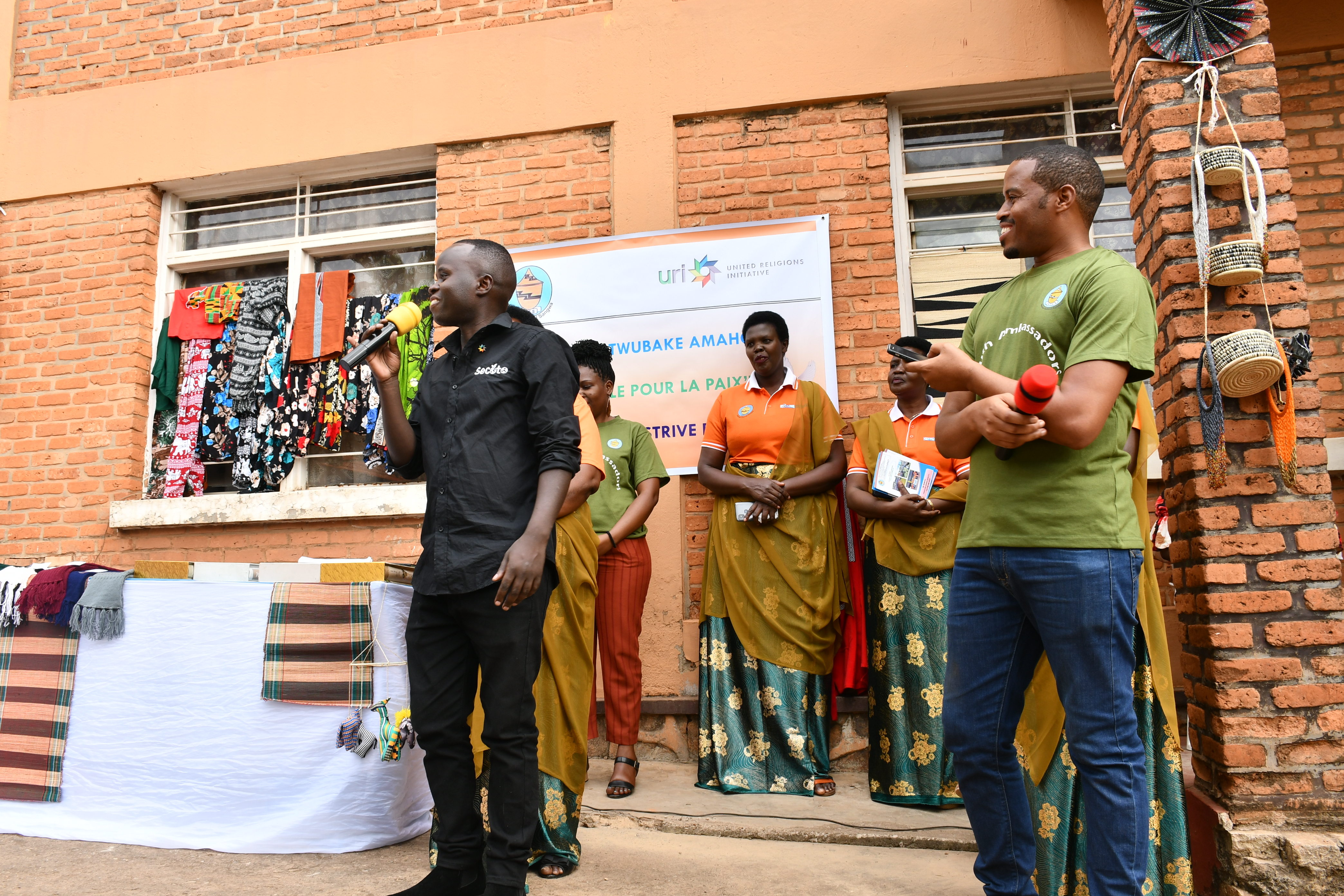
URI Staff at the Rwanda Genocide Memorial in Kigali
Genocide, defined by the United Nations as acts committed with the intent to destroy, in whole or in part, a national, ethnic, racial, or religious group, remains one of the most heinous crimes against humanity. It is a catastrophic failure of our shared humanity—and a reminder that the seeds of hatred if left unchecked, can grow into unspeakable violence.
Throughout history, the world has witnessed numerous genocides, each rooted in complex socio-political landscapes, such as the Holocaust, the Rohingya crisis in Myanmar, Srebrenica, and the Cambodian genocide, among others. While each atrocity is unique, they share common warning signs and precursors that demand attention and intervention.
One of the most infamous examples of genocide is the Rwandan Genocide, which took place over just 100 days from April to July 1994. This devastating event resulted in the deaths of an estimated 800,000 Tutsi individuals, as well as some moderate members of the Hutu ethnic group. The local and international community’s failure to intervene to prevent needless deaths will remain a painful chapter in our shared global history.

As we remember and honor the victims of the Rwandan Genocide, it is essential to learn from this tragedy and commit to collective efforts to prevent such atrocities from happening again. We must recognize that hateful rhetoric, even when presented as free expression, can escalate into real-world threats and acts of violence.
Hatred and dehumanization do not arise overnight. They are cultivated and learned through repeated exposure – from our daily interactions, to what we see and hear in the media. History has shown us that hatred, and the spreading of hate speech on and offline, is a learned behavior that can spread rapidly, tearing apart societies and eroding cohesion, and stability.
In our shared journey toward understanding and learning from the past, it is vital to address the insidious nature of hate speech and its role as a precursor to violence, including in the worst cases, genocide.
Hate speech acts as a catalyst for violence and creates conditions that contribute to violence, including through:
1. Dehumanization: It portrays targeted groups as lesser beings, stripping away their humanity.
2. Incitement to Violence: Hate speech can explicitly call for violence against specific groups.
3. Normalization of discrimination: Repeated exposure can lead people to view discrimination and violence against marginalized groups as acceptable.
4.”Othering”: It fosters an "us vs. them" mentality, creating fear, division, and mistrust between groups.

There are many warning signs before violence reaches the point of genocide. Unfortunately, many people turn a blind eye to these warning signs believing that the situation cannot be ‘that bad’ or that they do not have the power to do anything about it. Nothing is further from the truth! We are the only ones who can do something about it. If we do not push back against hateful rhetoric and incitement to violence, who will?
Over the years, URI members have actively worked to interrupt and prevent the spread of hate speech.
“Every day, we have the opportunity and responsibility to stop the spread of hate speech.”
At URI, we have adopted and are actively training our network in the Health Approach to Violence Prevention – a powerful framework that treats violence, and its precursors, as a public health issue, not merely a moral or criminal one.
By treating violence like an infectious disease, we as individuals and as communities, can stop its spread and change cultural beliefs that normalize violence. Just as public health systems look for risk factors and work to stop the spread of illness, we can also identify the "risk factors" and "symptoms" of societal violence—such as hate speech, exclusion, and trauma—and intervene early, before violence escalates.
Affirmed in our belief that violence can be prevented, URI remains grounded in its efforts to counter hate speech and other precursors to violence, and prevent religiously motivated violence wherever it is taking place.
As we observe the anniversary of the 1994 genocide in Rwanda, and honor its victims and survivors, we recognize and appreciate the tremendous efforts of URI Cooperation Circles in Rwanda, such as Eco Arts and Réseau Culturel Sangwa, which are dedicated to rebuilding their communities in the aftermath of the Genocide. These groups focus on fostering collective healing and reconciliation.

Réseau Culturel Sangwa in Rwanda is dedicated to training young leaders and assisting them in healing from a troubled past, including the impacts of the genocide. Through its programs, Réseau Culturel Sangwa transforms youth into visionary leaders within their communities and among their peers.
In addition to its exceptional work, Réseau Culturel Sangwa implements initiatives to promote reconciliation, empower women, and advocate for human rights.
As we reflect on this day, we are reminded of our responsibility to challenge narratives that undermine peace, cooperation, and cohesion.
We must commit not only to “Never Again” in words, but also in action.
Let us work together to:
- Interrupt hate speech and extremist ideologies in our communities
- Invest in peace education, youth engagement, and healing-centered approaches
- Train more leaders—especially faith-based and grassroots leaders—in the health approach to violence prevention
- Build networks of solidarity, within URI and with partners, to connect local peacebuilders across the globe
And we must continue to promote inclusivity and advocate for mutual respect and understanding within our communities. By doing so, we are fostering environments where peace, justice, and healing can thrive.
